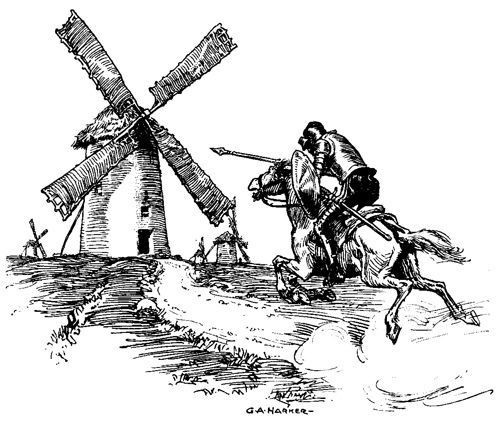Remember the Yucatán.
 When the European conquistadores first reached the land we still call the “Yucatán Peninsula”, there may have been a slight misunderstanding.
When the European conquistadores first reached the land we still call the “Yucatán Peninsula”, there may have been a slight misunderstanding.
The explorers asked their local guides what the land through which they were traveling was called. The guides answered: “Ma’anaatik ka t’ann” or “Tectetán”. Both of which meant, in Mayan, “I don’t understand what you are saying.”
In the local language, “Yucatán” meant: “What?”
Historical sources do differ, however. The Mayan guides may also have answered the question with the phrase, “uh yu ka t’ann”. Which meant, “hear how they talk”.
How easily that can happen: One tiny misunderstanding, and it becomes enshrined forever in history as a sort of warning to others. It’s like a cosmic game of telephone for the ages. A miscommunication, local comedians poking fun at the strange new visitors, and the rest is history.
The lesson: Beware the Yucatán.
Words are powerful, which is why misunderstandings are so frequent, even between the well-meaning, and can have such devastating consequences. The Yucatán is a reminder that what we know about the world, or think we know, could always bear a little more scrutiny. As could the words we use to define our world, ourselves, and communicate with each other.
Some of the world’s oldest major religions have been plagued by modern misunderstandings of concepts so central to the faith as to be disastrous to misconstrue. And yet, these misnomers, mis-translations, and over-simplifications persist.
For instance, the first noble truth in Buddhism is “Life is Dukkha.”
This is popularly understood to mean, “Life is suffering.” But this is an oversimplification, as our translations of complex ideas and philosophical concepts so often are.
What the Buddha actually said was a bit more complicated.
“This is dukkha: birth is dukkha, aging is dukkha, sickness is dukkha, death is dukkha, encountering what is not dear is dukkha, separation from what is dear is dukkha, not getting what one wants is dukkha.” — Gotama, First Sermon
And as Oscar Wilde once rightly pointed out, and on which the Buddha might agree, sometimes getting what one wants is dukkha, too.
The word contemporary word “sin” is another example.
Our English word “sin” has a certain connotation which doesn’t scratch the surface of all the words for sin included in the original Greek and Hebrew texts.
One ancient Greek verb for “to sin”, in the original written language of the Christian Bible’s New Testament, meant only to “miss the mark.”
The original Old Testament, or Tanakh, used 6 ancient Hebrew nouns and 3 verbs to describe what has become lumped under the single modern English word “sin”. The nine ancient Hebrew words meant everything from “contrary to God’s nature” to “going astray”.
Secular life hasn’t been immune either. “Logos” in Latin meant originally, “love of God.” Today, “logo” has come to mean the symbol for a company or product. “Love of community” would have been a better swap.
Fraternity once meant brotherhood, familiar love, kinship. Today the word refers to an all-male college social club best known for, among other, darker things, throwing great parties.
Perhaps the worst example of mistranslation is our modern understanding of the English word “meditation”.
In modern English, to “meditate” means to “cogitate”. If someone says they are going to “meditate” on something, we understand that to mean they are going to think about it, perhaps deeply, perhaps while clearing their mind of everything else in a proscribed practice.
The original Sanskrit word for meditation was “Bhavana”. But it didn’t mean cogitation. Bhavana didn’t mean “to think”; it didn’t even mean “to refrain from thinking”.
Bhavana meant “cultivation”. Specifically, it meant “cultivation of the land”.
Understanding the practice of meditation as a cultivation of the landscape of the mind, akin to the process of the cultivation of crops, offers a new and very helpful insight into understanding the process, and purpose, of meditation.
How can we free ourselves from the modern-day tyranny of the English language?
There are a few ways. Try learning another language. An apple by any other name would taste just as sweet.
Learning more than one word for things can help us understand the difference between what a thing is called, and what it actually is.
A “leaf”, by any other name, would still be a perfect, all-natural solar panel with a quantum energy booster. Without a “brain” as we understand it, a plant, by some method science is far from explaining, is able to predict how much energy it will need and store that amount. If the plant “miscalculates” and doesn’t store enough energy, it is capable, somehow, of generating small amounts of quantum energy to compensate and survive for short periods of time.
Which means a plant’s humble “leaves” may defy the laws of Newtonian physics as we understand them and veer into territory Einstein called “Spooky action at a distance.”
In a world where we accept that energy is never created or destroyed- only transferred, transformed or transmogrified- evidence to the contrary may be growing from the nearest tree.
Lest we miss the forest for the leaves, we should question everything, even the very words we have been taught to use.
(contributing writer, Brooke Bell)